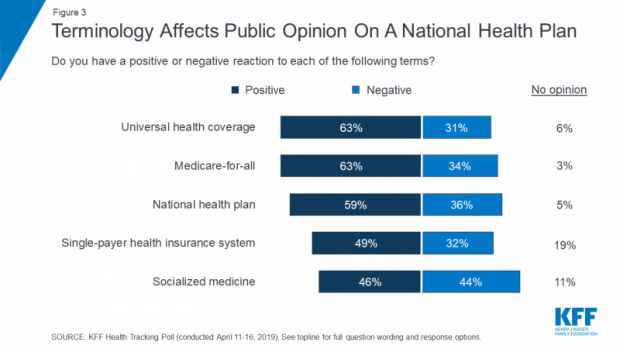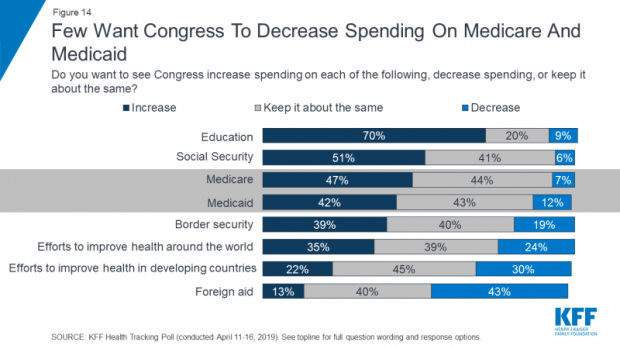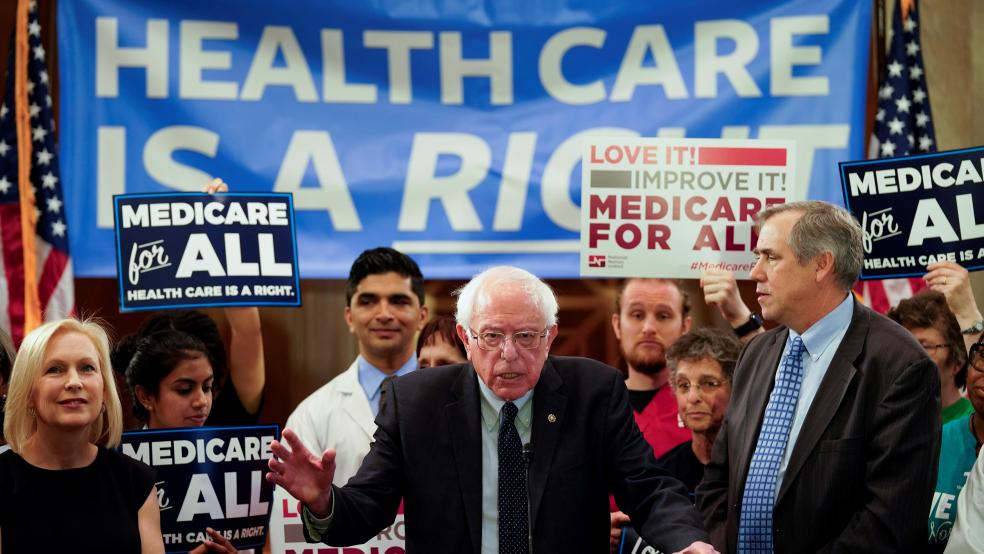Politicians and policy wonks may be busy debating the costs and benefits of Medicare for All, but Americans want lawmakers to prioritize some narrower reforms: bringing down prescription drug costs and preserving the Affordable Care Act’s protections for people with pre-existing medical conditions.
More than two-thirds of respondents in the Kaiser Family Foundation’s latest tracking poll said that “lowering prescription drugs costs for as many Americans as possible” should be a top health care priority.
Similarly, 64% said that continuing the ACA’s protections for those with pre-existing conditions should be a top priority. Even among Republicans, 73% of whom say they want to see the Affordable Care Act overturned, 52% also say they want the law’s protections for pre-existing protections preserved.

By contrast, 31 percent said implementing a Medicare for All plan should be a top priority, while 27 percent said repealing and replacing the ACA should be. Those policy ideas draw fairly strong partisan support, though, with roughly half of Republicans (52%) saying Obamacare repeal should be a top priority (52 percent) and a similar share of Democrats (47%) calling Medicare for All a top priority.
Overall, 56% of Americans favor Medicare for All, which the poll explained would see people “get their insurance from a single government plan.” Perhaps unsurprisingly, Kaiser also found that the terminology used affects perceptions of a national health plan:

The tracking poll also finds that relatively few Americans want Congress to “decrease spending” on Medicare and Medicaid, with far larger shares of respondents saying they want to “increase spending” on those programs.

Americans also want lawmakers to tackle the issue of surprise medical bills, with majorities of both Democrats and Republicans saying that the federal government should protect patients from paying unexpected charges that arise when someone covered by insurance inadvertently receives care from an out-of-network provider.





